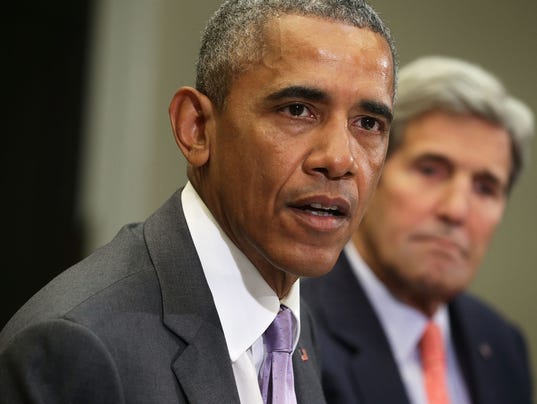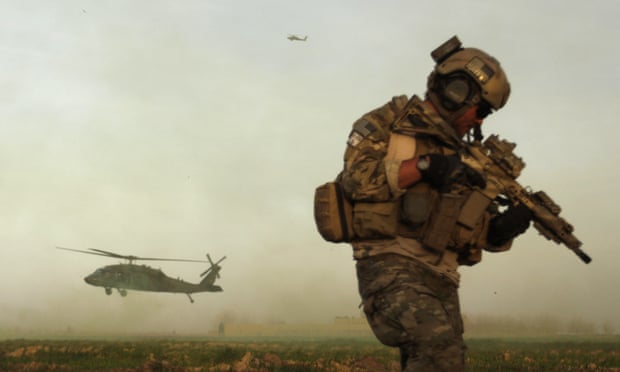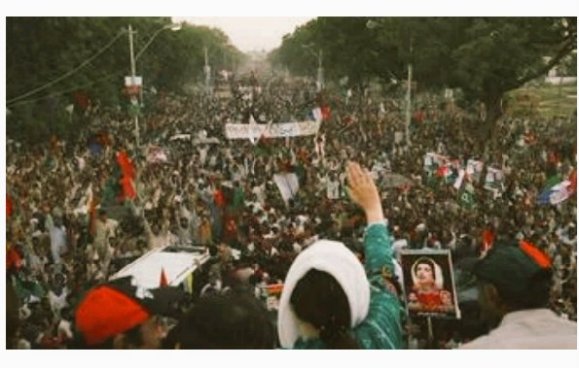Hekmatullah Azamy
In the years that followed the 9/11 attacks against the United States, Pakistani leaders prided themselves in being "the frontline state against terrorism" for years as Western leaders showered praise and assistance upon the country.
But the 2011 killing of Al-Qaeda leader Osama bin Laden in a Pakistani garrison town and Islamabad's continued tolerance of Afghan Taliban sanctuaries have inevitably led to accusations of duplicity.
Critics pointed out that while receiving billions of dollars from Western nations in the name of fighting terrorists, Islamabad was covertly supporting the Taliban and tolerated jihadist groups accused of fomenting violence in neighboring countries.
Sources within the Afghan Taliban now say Islamabad is engaged in similar double-dealing with the hardline movement.
They say that although Islamabad played a prominent role in enabling the succession of current Taliban leader Mullah Akhtar Mohammad Mansur, it has also shored up opponents within the radical Islamist movement to keep him in check and dependent on Pakistani support.
Since the confirmation of former leader Mullah Mohammad Omar’s death in July, Mansur has struggled to establish himself as the undisputed leader.
These sources, most of whom requested anonymity, say Pakistan's response is a new policy to allow divisions within the group as a means to retain control over the fragmented movement.
Islamabad's more immediate goal is allowing a divided Taliban leadership to take shape while preventing infighting among foot soldiers. Taliban insiders say in the longer term Islamabad wants to push Mansur into negotiations with Kabul while supporting the anti-Mansur camp in continued fighting within Afghanistan.
"Like its policy toward the mujahedin parties [of the 1980 and '90s], Pakistan seeks to create factions within the Taliban and use them to threaten Mansur or balance influence among rival groups," said Khalifa Akhund, a pseudonym for a Mansur supporter.
He says Tayyab Agha, former head of the Taliban's office in Qatar, and renegade Taliban commander Mansoor Dadullah rejected Mansur's leadership because of his close ties with Pakistan. Agha resigned from his post in August while in September Mansur dispatched hundreds of fighters to dislodge Dadullah from his stronghold in southern Afghanistan.
Akhund says some senior members of the Quetta Shura, the Taliban leadership council, including Mullah Hassan Rahmani, Mullah Abdul Razaq, and Abdul Manan Niazi, oppose Mansur at the behest of Pakistan.
A senior Afghan intelligence official concurred, speaking on the condition of anonymity, saying that unlike the mujahedin, Islamabad is not allowing pro- and anti-Mansur camps to fight each other because it would undermine their movement's fighting potential on the battlefield.
This is why Kabul's effort to foment Taliban infighting failed. "If divisions were not controlled, it could undermine the Taliban's ability on the battlefield, and the group would be weaker whenever it joins negotiations," he said.
The Afghan official said Islamabad is empowering Mansur's potential rivals inside Afghanistan. He says Pakistan recently helped veteran Taliban commander Abdul Qayum Zakir launch large-scale offensives in southern Afghanistan. Since August, the Taliban have made significant advances in the Musa Qala and Kajaki districts of Helmand Province.
These operations compelled Mansur to offer Zakir to either become his first deputy or become the Taliban's shadow "defense minister." Zakir, a former Guantanamo detainee, was considered an archrival of Mansur. He was appointed head of the Taliban's military commission in 2010, but Mansur reportedly sacked him in 2014.
Taliban sources say Mansur has long sought Taliban leadership with Pakistani assistance. In 2007, he replaced former Taliban deputy leader Mullah Obaidullah Akhund after his arrest in Pakistan.
In 2010, he helped Pakistan "orchestrate" the arrest of Taliban deputy leader Mullah Abdul Ghani Baradar. These sources claim Mansur accused him of engaging in unauthorized talks with Kabul.
Soon after Baradar's arrest, Mansur assumed his position and turned into the Taliban's de facto leader.
Taliban sources say Pakistan's backing of Mansur became apparent to them during their leadership transition this summer. Without Mansur and his Pakistani patrons’ permission, confirming Mullah Omar’s [in July] would not have been possible," Mawalwi Amin (name changed), a Taliban member, told me.
Amin offers three reasons for the timing of confirmation of Mullah Omar’s death reports, which were circulating for years. First, Kabul asked Pakistan to arrange a direct confirmation of Mullah Omar’s support for peace talks, as claimed in an Eid statement published under the late leader's name on July 15. Second, to prevent defections from the Taliban to the Islamic State militants because of Mullah Omar’s prolonged absence. Finally, Pakistan and Mansur deemed the timing was right to publicly announce his leadership over the movement.
Qari Fida (name changed) is a senior Taliban figure who recently returned from Pakistan after meeting with Taliban leaders opposing Mansur. He says Islamabad's aim is to divide the leadership after insurgent leaders attempted to act independently while exploring negotiations with Kabul.
He says that in early 2015, a Taliban faction decided to leave Pakistan after Islamabad pressured it to negotiate with Kabul. Islamabad was alarmed when some Taliban members boycotted the Mansur-sanctioned peace meeting with Afghan officials in early July.
Fida says by pressuring some Taliban to join peace talks, Pakistan also supports the anti-Mansur camp so they could continue operations in Afghanistan should Mansur strike a peace deal with Kabul. Earlier this year, Mansur faced considerable opposition from within the Taliban when he revealed a willingness to engage in peace talks. But he later dismissed the talks as enemy propaganda.
Powerful elements within the Taliban oppose peace talks and Mansur's leadership, but Islamabad has so far done nothing to either urge them to support Mansur or warn them not to use Pakistan's soil in their fight against the Afghan government.
In addition, Fida says, Pakistan's willingness to work with an anti-Mansur camp is aimed at containing a possible Taliban rebellion against Pakistan because of concerns that Afghan rebels would support Tehrik-e Taliban Pakistan (TTP). Islamabad sees TTP as an existential threat and has often claimed they operate from Afghan safe havens.
Recently, Pakistan has called for the resumption of peace talks between the Afghan government and the Taliban. But Kabul has instead called on Islamabad to end its covert support for the Afghan Taliban.
A senior Afghan official says Pakistan is pushing hard for peace talks and has even complained to Kabul about ignoring its calls for the resumption of talks. "In order to please China, Pakistan is pushing to facilitate peace talks, but Kabul has lost trust over the country," he said.
Kabul is apparently worried over Pakistan's new approach, which aims to win one camp of the Taliban a role within the Afghan government while helping another to sustain the fight in Afghanistan.
Islamabad can only end these concerns if it makes a clean break with all Taliban factions by denying them sanctuary and covert assistance. U.S. President Barack Obama drew a similar conclusion when he called for an end to Taliban sanctuaries on October 14.
"Next week, I’ll host Prime Minister Sharif of Pakistan, and I will continue to urge all parties in the region to press the Taliban to return to peace talks and to do their part in pursuit of the peace that Afghans deserve," Obama said.














